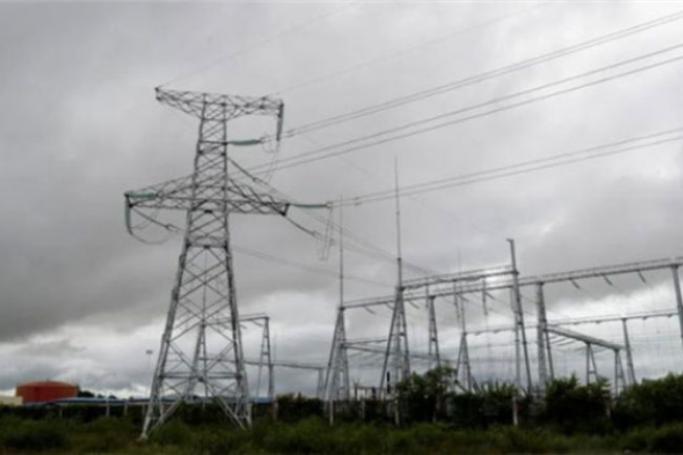For more than nine months since the military coup, Myanmar’s cities and towns have been experiencing power outages for several hours on a daily basis.
More than 11 months after the coup, the Military Council announced in a military-owned newspaper on January 6 that the electricity load would be reduced across the whole country as gas prices at power plants had quadrupled.
It was not clearly announced just how many hours per day will be subject to power outages, or how it might affect the load in the morning and evening when people commonly use it. But what is clear is that there is a greater possibility of power outages than before.
It is important to bear in mind what this means for people’s lives and businesses, and how many people will have to sit in hot rooms with no electricity.
The Military Council may point at the gas price. But fingers should be pointed at the generals who are slowly torturing the country.
The Military Council said that it will reduce 1,470 megawatts of electricity load this year, but currently, the national maximum power generation capacity is 4,200 megawatts. Among them, about 750 megawatts of the LNG to Power plant has been shut down due to a fourfold increase in gas prices, 540 megawatts reduction in production due to the suspension and maintenance of the Yadana Offshore Gas Project and 180 megawatts reduction due to the demolition of 230 KV towers at Baluchaung Hydroelectric power Plant.
These are the numbers and reasons put forward by the junta for the electricity load reduction.
The Yadana offshore gas project is expected to resume on January 7, but will be reduced to 930 megawatts. Therefore, power outages can occur at any time from 7 am to 11 am and also between 5 pm and 7 pm, according to a military-owned newspaper.
However, the electricity companies were shut down because the Military Council could no longer pay the bills and rising gas prices were a normal routine, an officer from an electricity company told People Spring News Media.
Since November 2021, the Ministry of Electricity and Energy of the Military Council has announced that it will reduce the electricity load on Myanmar by two hours a day from November 19, noting power generation is declining and some power lines will be repaired.
There will be temporary power outages in some areas – announced via social media - as Yangon electricity supply corporation (YESC) provides maintenance and repair of power lines on a daily basis, cutting and clearing trees and branches adjacent to the power lines and due to the setting up of new power lines. It is now repeatedly noted that people should not use electricity when it is not needed.
A resident from Pazundaung township explained the difficulties.
“The power outages run for about two hours a day, sometimes in the morning and sometimes in the evening. At the beginning of 2022, there was a power outage for more than five hours a day. Today's announcement means it will be even worse. People working from home have to rely on wifi internet and have to stop work when the power goes out. If we use mobile data instead of wifi, we will have a hard time because of the huge increase in mobile data rates. We are praying for an immediate end to the military dictatorship,” he said.
The Electricity Supply Corporation announced on November 19 that it had found unauthorized Internet fiber optic cables on the electric poles and that they would have to be removed and action would be taken according to the law.
In addition to big cities like Yangon, there are also occasional power outages on a daily basis in rural areas.
"There are power outages three times a day. This was not like before. Previously, if there were power outages, the electricity supply corporation announced it first. At present, there are no announcements about power outages for about two hours each, three times a day,” a local resident in Depayin said.
Compounding the problem are the actions of citizens up in arms against the illegal regime.
Since the military coup in February, the people have launched a campaign not to pay the electric meter bills to stop the flow of money to the Military Council and to stop the functioning of the state machinery.
The National Unity Government (NUG) announced on June 8 that people should not pay the meter bills as the money would be used by the oppressive regime.
Soe Thura Tun, Union Minister for Electricity and Energy appointed by the NUG says the Military Council is losing about $160 million a month due to the people not paying electricity bills, which could be a deterrent to the military. La Fai Maw Tun Aung, his deputy, urged all individual citizens not to pay the electric meter bills to the Military Council.
On the other hand, people have been informed many times in various ways that electricity bills need to be paid regularly and can be paid online not only in person but also through connected banks.
The electricity supply corporation (EPC) staff are cutting off the power supply of houses that do not pay meter fees in various townships. As a result, some houses are paying electricity meter bills at electricity supply offices for fear of a power outage. However, the people who paid the electric meter bills were also affected by the power outage, which was said to reduce the burden on the electricity department, and power outages were occurring across the country.
Adding to the disruption, local People’s Defence Forces have bombed electricity offices and issued warnings, countering the push by the Military Council to force people to pay their electricity bills.












